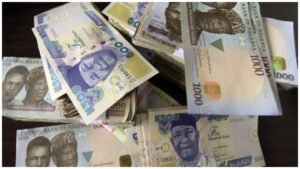

The Nigerian naira has been identified as one of the weakest currencies in Sub-Saharan Africa for 2024, according to the latest report from the World Bank, titled “Africa’s Pulse.” As of August 2024, the naira has experienced a steep depreciation of around 43% year-to-date, placing it alongside the Ethiopian birr and the South Sudanese pound in terms of performance.
The report attributes this decline to a surge in demand for U.S. dollars within Nigeria’s parallel market, compounded by limited dollar inflows and sluggish foreign exchange distributions by the central bank. Financial institutions, non-financial users, and money managers have all contributed to this heightened demand, further exerting pressure on the naira.
Despite recent reforms aimed at stabilizing Nigeria’s foreign exchange market—including the liberalization of the official exchange rate in June 2023—the efforts have proven inadequate in reversing the currency’s downward trend. Broader economic challenges, such as dwindling foreign reserves and persistent inflation, have further complicated the situation, leading to significant increases in domestic prices, especially for imported goods.
However, there have been signs of a slight recovery. On October 14, the naira appreciated by 5.69% against the dollar, rising from N1,641.27 to N1,552.92 per dollar. Despite this improvement, the foreign exchange turnover has plummeted by 44.27% during the same timeframe, indicating ongoing volatility in the market.
Looking ahead, the World Bank forecasts a 3.3% growth for Nigeria’s economy in 2024, with an anticipated increase to 3.6% between 2025 and 2026 as reform measures begin to take effect. Nevertheless, inflation remains a pressing issue, particularly in the wake of fuel subsidy removals in mid-2023, which have seen gasoline prices triple and significantly escalated transportation and logistics costs nationwide.
As the naira continues to navigate a challenging economic landscape, the Nigerian government faces mounting pressure to implement effective strategies to stabilize the currency and improve conditions for consumers.